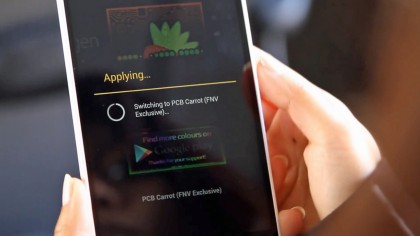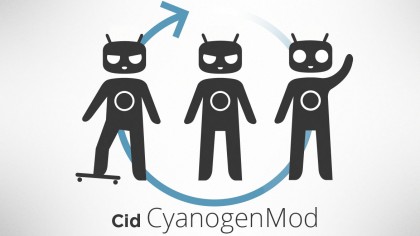CyanogenMod: from bedroom Android hack to million dollar mobile OS
Third-party mod is set to hit the big time

"This is just the beginning of bigger things, really. We have the chance to do some experimentation and get everything in place to support something like this, and then next year we'll do something bigger. It's got to be done right, though.
"You can't just put some branding on a phone and sell it. You've got to provide something that you can't get elsewhere, especially if you want to make money off the thing. It's going to be important to have a really great platform, really great services. People aren't just going to shell out $800 for a device unless it's really giving them something that they can't get elsewhere."
One way to do this is be on a device from a new company, and that's exactly what was announced at CES 2014. It was revealed that Cyanogen Inc was teaming up with a new mobile venture from China - OnePlus. The link? The founder of OnePlus is Pete Lau, a former VP of Oppo.
Mass appeal
Another opportunity is to use the team's knowledge, and the flexibility of CM's Android roots, to make something new that appeals to a different audience.
"CM is absolutely perfect for people who are technical, and everything is designed for people who are technical. We don't want to dumb it down, but we want to wrap some of that stuff in a prettier face. Sometime next year, we're planning on launching something quite a bit bigger that's geared more towards a broader market," says Kondik.
"We don't want to dumb CyanogenMod down, but we want to wrap some of that stuff in a prettier face."
These plans help to explain why the team wanted to take the chance to push CM further by creating a business around it, but the decision understandably caused some concerns from the community, while some contributors wanted to know whether they would get paid a portion of the new business money for the work they put in.
Get daily insight, inspiration and deals in your inbox
Sign up for breaking news, reviews, opinion, top tech deals, and more.
"I think some of the younger guys have this vision that Steve and I got written this seven million dollar check that went into our bank accounts," says Koush.
"The money that we got is to build a business, so it's hiring people, paying them, building out an office, paying for the servers that have been donated for so long, paying for bandwidth… Paying for so many different things that it's scary looking through the transactions of our bank account."
Keeping competitive
The new company has also announced that some of the work it will do will be proprietary, leading to concerns over the future of the open-source project. Kondik understands these fears, but is fairly bullish that they're unfounded.
"When you look at Android, it was done with a very specific goal in mind – to really screw up an industry that had gone so far down the proprietary software route that it was hopeless. And they totally succeeded. But now it's happening again, and we're hoping to be the answer to that," he says.
"But you have to find a balance. The things that we won't be releasing are the things that give us a competitive edge. We won't release the source code for our installer. That would be crazy."
"But we don't have any plans to close source any of the existing stuff," he says, definitively. "We're building on top of the open source project. We're not even maintaining a closed fork of CM internally. Anything that we need to do to support our own applications, we'll build the APIs [application programming interface] into the open source side and ship that.

"Going forward, you're going to see two release branches. One is going to be business as usual, what we're releasing today. Then you're going to see a version that comes with extra stuff that we've done that we think is pretty awesome."